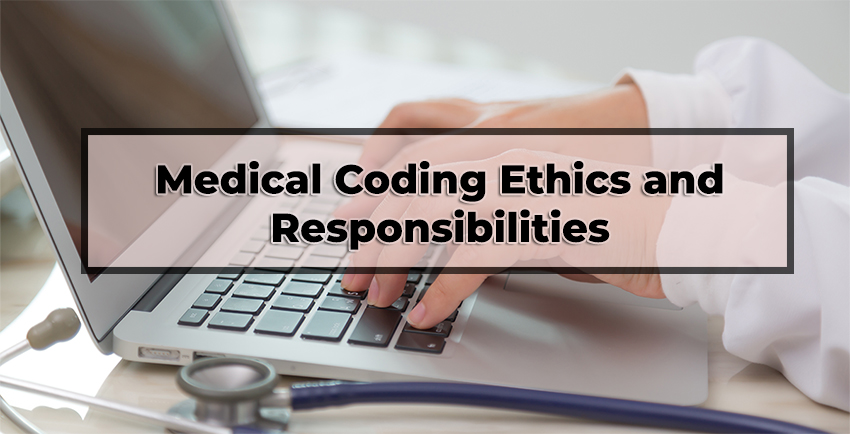Medical Coding Ethics and Responsibilities
Medical coding is an essential part of the healthcare system, ensuring that diagnoses, treatments, and procedures are accurately recorded and billed. However, the role comes with significant ethical responsibilities that coders must adhere to. Below is a detailed discussion of these ethical principles and the responsibilities they entail.

Importance of Accurate Coding
Accuracy is paramount in medical coding. Coders must ensure that every code they assign reflects the actual services provided. Any deviation from accuracy, whether intentional or unintentional, can lead to financial losses, claim denials, or legal consequences. Coders should cross-reference documentation carefully to ensure correct code assignment, thus protecting the integrity of the billing process.
Protecting Patient Confidentiality
Medical coders handle sensitive personal health information (PHI), which makes safeguarding patient confidentiality a critical aspect of their role. Coders must comply with HIPAA regulations, ensuring that PHI is only accessed or shared when necessary for legitimate coding and billing purposes. Breaching patient privacy can lead to severe penalties and erode trust in healthcare systems.
Ensuring Regulatory Compliance
Medical coders must stay up to date with the regulations set by governing bodies like CMS and NCCI. Compliance with these rules is crucial to prevent fraud, avoid audits, and ensure that healthcare providers receive proper reimbursement. Coders must be familiar with the latest updates in coding regulations and be vigilant in applying them in day-to-day tasks.
Avoiding Financial Misconduct: Upcoding and Downcoding
Upcoding (assigning a higher-value code than appropriate) and downcoding (underreporting services) are unethical practices that can result in significant legal issues. Coders must avoid any intentional manipulation of codes to increase or decrease billing amounts. Instead, they should focus on assigning codes that are justified by the medical records, ensuring both accuracy and fairness in billing.
Staying Current Through Continuous Education
The world of medical coding is ever-evolving, with updates to ICD, CPT, and HCPCS occurring frequently. Coders must engage in continuous education to keep up with these changes. Regular training and professional development are necessary to maintain proficiency and ensure compliance with the latest standards.
Clear Documentation: A Critical Responsibility
Without clear and accurate clinical documentation, assigning the right codes becomes nearly impossible. Coders should ensure that every code is backed by thorough clinical notes from healthcare providers. When documentation is ambiguous or incomplete, coders should proactively seek clarification rather than making assumptions or relying on insufficient information.
Upholding Professional Integrity
Integrity is at the heart of ethical medical coding. Coders must always be honest in their work, avoiding any actions that could misrepresent the services rendered or falsify information. Whether dealing with providers, patients, or insurers, coders must act in good faith, ensuring that their work contributes to a transparent and trustworthy healthcare system.
Navigating Conflicts of Interest
Coders should remain impartial and objective, ensuring that their coding practices are free from any conflicts of interest. Decisions should not be influenced by personal or financial gain, and coders must refrain from altering codes to benefit specific parties, whether providers or insurance companies.
Reporting Unethical Practices
Coders who observe unethical behavior, such as fraudulent billing or intentional misrepresentation, have a duty to report these activities. Ignoring unethical practices makes coders complicit and can expose them to legal liability. By reporting unethical actions, coders help maintain the integrity of the healthcare system and ensure that fraudulent behavior is addressed promptly.
Taking Responsibility for Errors
Medical coding errors can result in claim denials, financial penalties, and compromised patient care. Coders must be accountable for their work, correcting mistakes as soon as they are identified. Regular audits and self-reviews help minimize errors and ensure that coding practices remain accurate and reliable.
Ethics and responsibility are at the core of medical coding. Coders must ensure accuracy in their work, protect patient privacy, follow regulations, and act with integrity. By staying updated on industry changes, reporting unethical practices, and maintaining transparency, coders contribute to the smooth functioning of healthcare billing and the overall trust in the healthcare system.

